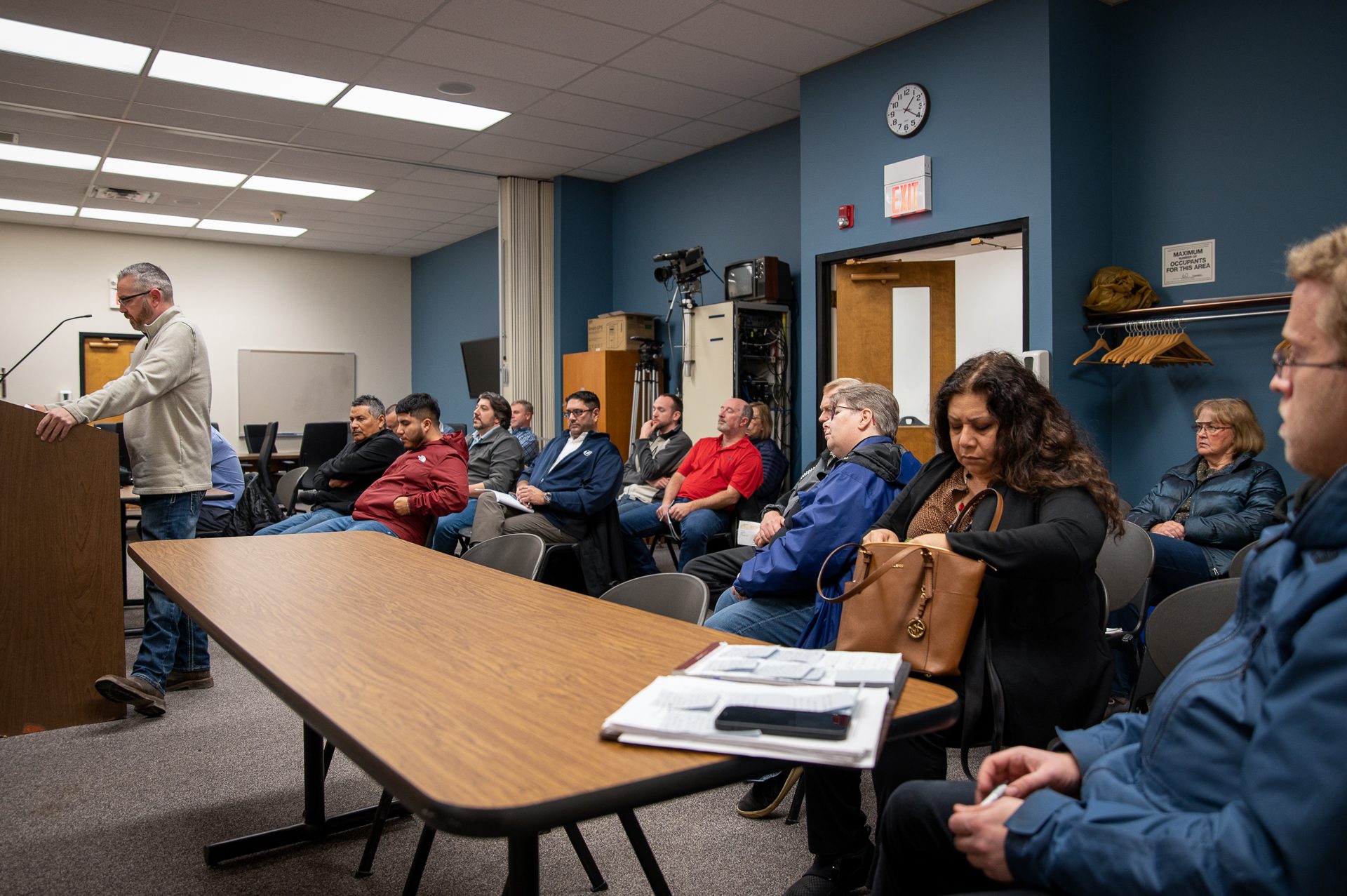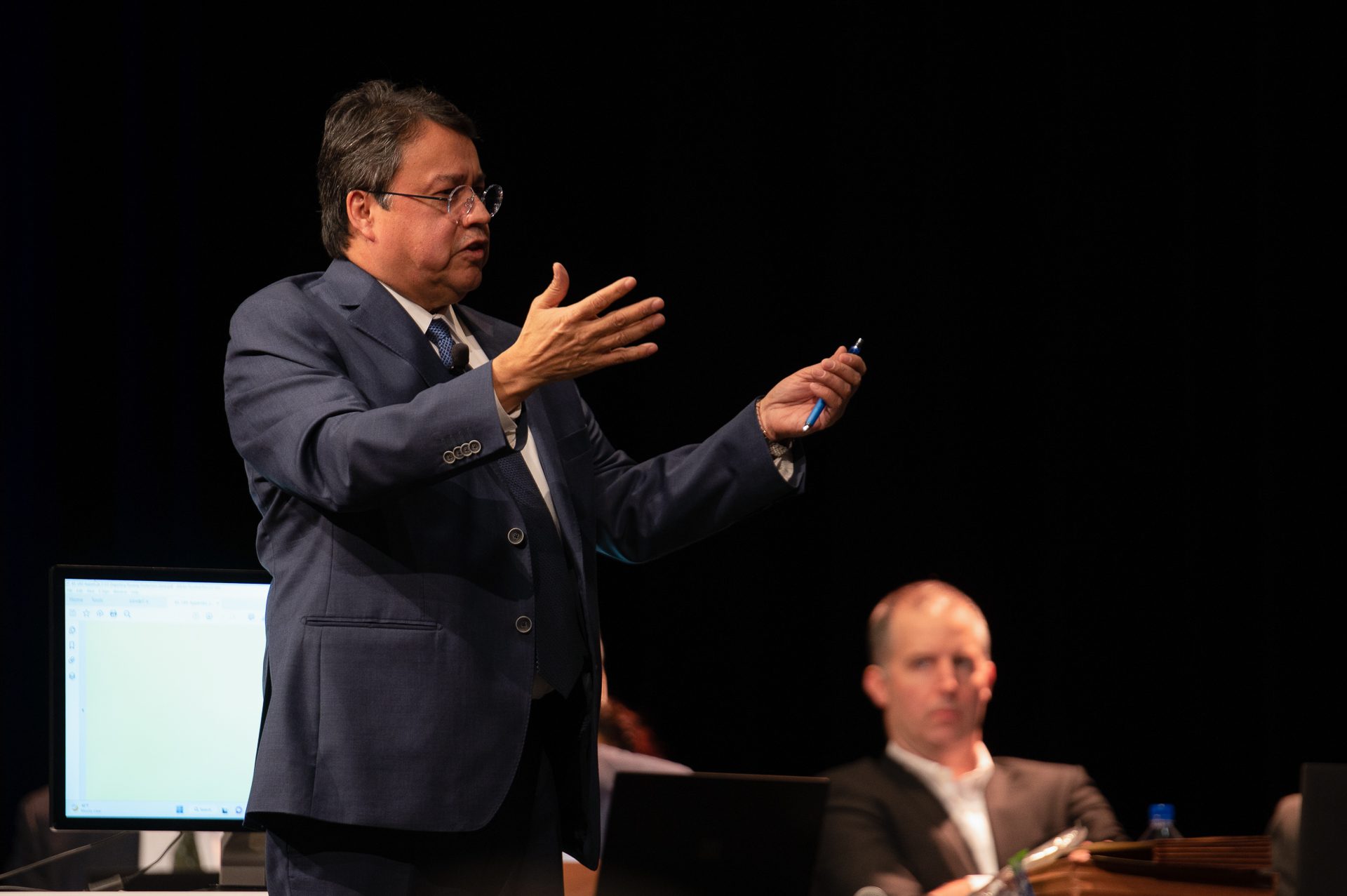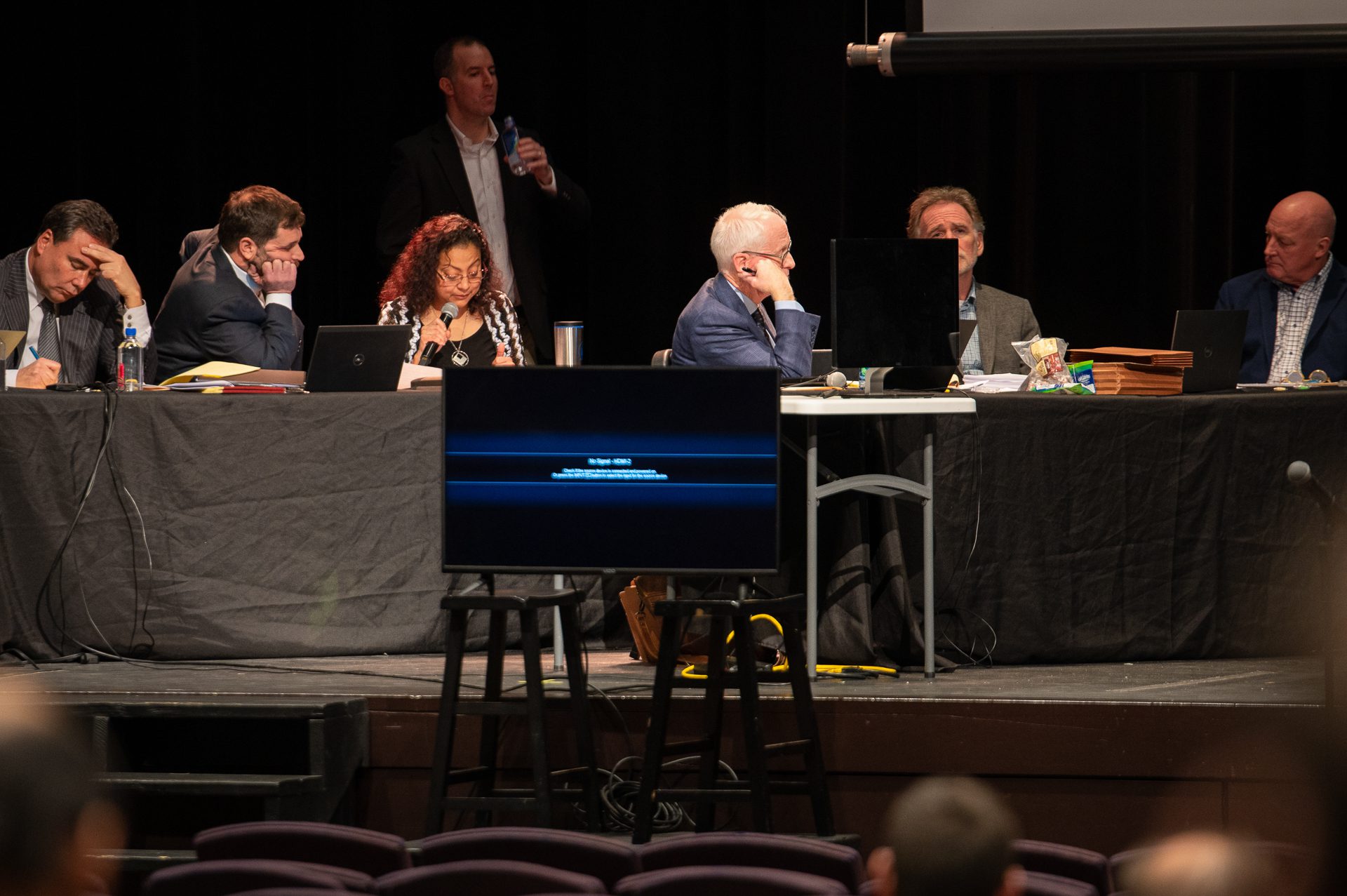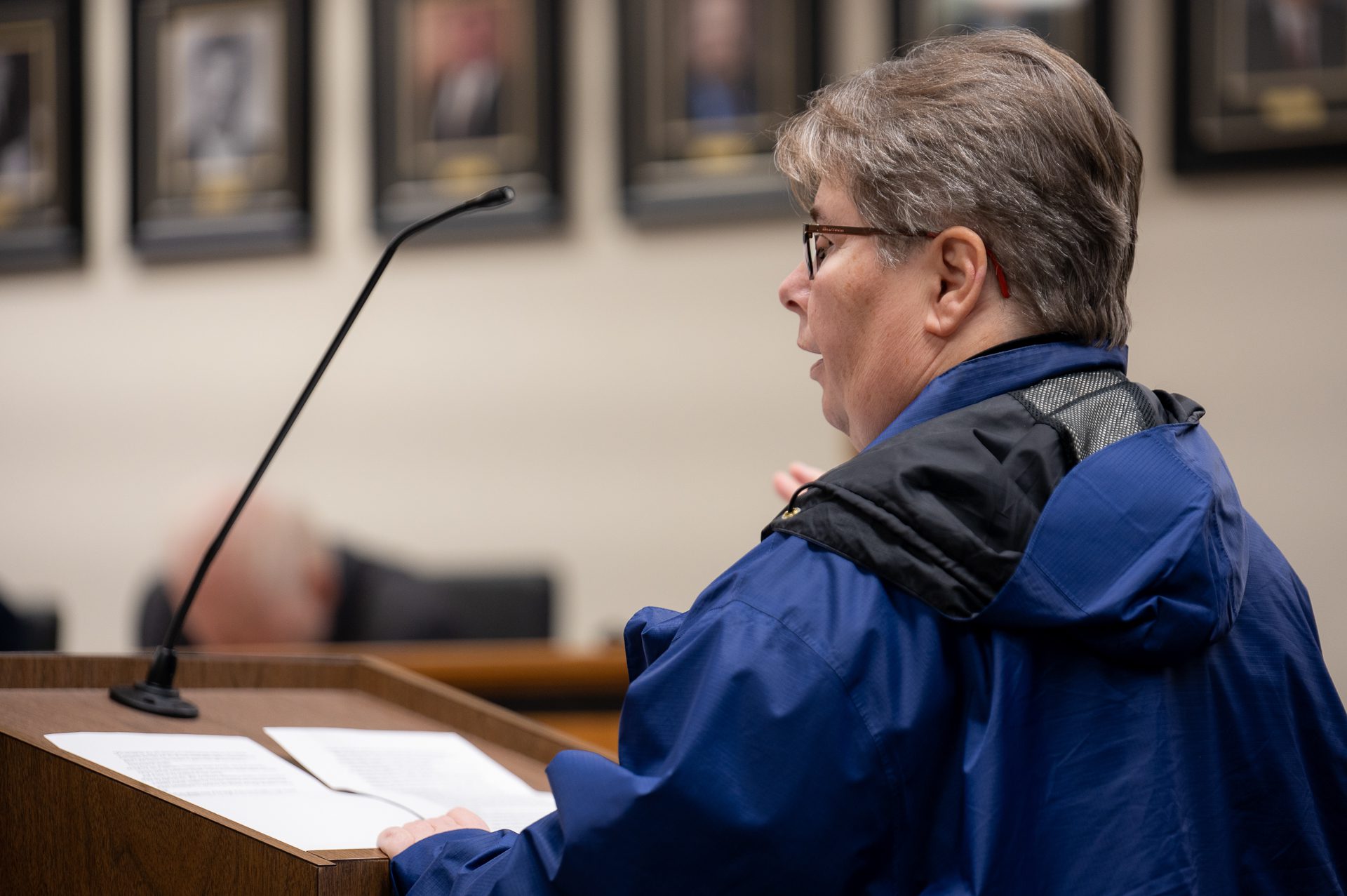 Jonathan Aguilar/Revista sin fronteras
Jonathan Aguilar/Revista sin fronterasEn medio de preocupaciones medioambientales, los residentes cuestionaron la necesidad de una segunda estación de residuos en su comunidad y quisieron saber qué medidas se tomarán para mitigar el aumento de la contaminación.
El Ayuntamiento de West Chicago celebró una serie de reuniones públicas para debatir la solicitud de Lakeshore Recycling Systems (LRS) de abrir una segunda estación de transferencia de residuos en la ciudad, de mayoría latina. Pero a los residentes les preocupa que la ampliación de la estación de basura aumente la contaminación atmosférica, los olores y la exposición a sustancias químicas peligrosas.
Tras siete reuniones celebradas a lo largo de dos semanas, algunos residentes afirman que siguen sin ser escuchados.
Noticias que ponen el poder en el punto de mira y a las comunidades en el centro.
Suscríbase a nuestro boletín gratuito y reciba actualizaciones dos veces por semana.
A las reuniones asistieron miembros del Ayuntamiento de West Chicago, residentes preocupados, representantes de LRS y miembros de Proteger West Chicagoque se formó en 2020 para oponerse a la estación de transferencia, citando entre sus preocupaciones el aumento de la contaminación atmosférica de la instalación y el tráfico relacionado.
Según la Ley de protección del medio ambiente de Illinois (Sección 39.2: revisión de la ubicación local), LRS tendrá que cumplir nueve criterios para obtener la aprobación del emplazamiento de la estación de transferencia, según determine el Ayuntamiento de West Chicago.
Gama de criterios desde asegurarse de que el lugar de transferencia de residuos no esté situado en una llanura aluvial hasta que la instalación proyectada esté "diseñada, ubicada y propuesta para ser explotada de modo que se proteja la salud, la seguridad y el bienestar públicos".
Si el ayuntamiento aprueba el emplazamiento, deberán obtenerse los permisos de desarrollo y funcionamiento de la instalación de la Agencia de Protección del Medio Ambiente de Illinois.
Más información
Ricardo Meza, un abogado que representa a Protect West Chicago dijo a Borderless que no creen que la propuesta de LRS cumpla los criterios de la EPA para su aprobación, que una segunda estación de transferencia de residuos es innecesaria en la ciudad, y que esperan que el Ayuntamiento de West Chicago esté de acuerdo.
"Protect West Chicago no trata de impedir la entrada de "LRS", sino de impedir la entrada de una segunda estación de transferencia de residuos", dijo Meza.

Los representantes de LRS discutieron los detalles de la solicitud y el diseño del emplazamiento, y argumentaron que el nuevo emplazamiento sería beneficioso para la comunidad al crear puestos de trabajo en la zona y reducir las emisiones de las rutas de tráfico más largas, entre otras cosas.
Por su parte, miembros de Protect West Chicago manifestaron su preocupación por que la ampliación imponga una carga desproporcionada a la comunidad latina de West Chicago y contribuya a la mala calidad del aire y la contaminación.
Borderless se puso en contacto tanto con LRS como con Protect West Chicago, pero ambos grupos se negaron a hacer declaraciones públicas mientras se examina la solicitud.
Organizaciones como Solidaridad con los Inmigrantes de DuPage afirman que este plan está perpetuando un patrón de racismo medioambiental en los suburbios del Oeste, donde las comunidades negras y marrones se llevan la peor parte de la industria pesada y la contaminación.
Julieta Alcántar-García, residente de toda la vida de West Chicago y enlace de salud comunitaria para ISD, dijo que ella y otros residentes han notado un mal olor y olor a basura en sus barrios procedentes de la estación de basura existente.
"Vivo en el centro de la ciudad. Y varias veces mis vecinos me han dicho: 'Dios mío, cómo huele el aire'.

Alcántar-García declaró a Borderless que tenía la sensación de que se estaba excluyendo a la comunidad de las audiencias.
"Estoy muy disgustada por la falta de contacto con la comunidad latina para hablarles de los planes. Creo que la ciudad de West Chicago no quería que nuestra comunidad estuviera presente", dijo Alcántar-García. "Nada fue en español, todo el proceso fue en inglés. "El 52% de la comunidad latina de West Chicago no pudo decir nada", añadió.
Además de las barreras lingüísticas, muchas de las sesiones para comentarios públicos se programaron durante la jornada laboral. El ayuntamiento exigió que todos los comentarios del público se presentaran por escrito antes de la audiencia pública. Esta opción estuvo disponible desde el lunes 17 de octubre hasta el martes 3 de enero, fecha de la primera audiencia pública.
Kathy Leski, residente en el oeste de Chicago, vive a menos de una milla del lugar propuesto para la nueva estación. Se tomó el día libre para asistir a la audiencia, hacer sus comentarios y cuestionar a LRS. Leski dijo que se opone a la ampliación de LRS porque "los argumentos de LRS son para su propio beneficio y no para los ciudadanos de Chicago Oeste". Y que el testimonio de PWC había demostrado que el valor de la propiedad en la zona bajará. "Tenemos negocios y zonas residenciales a un octavo de milla de la estación de transferencia", dijo.
"Da la sensación de que la ciudad ya ha tomado su decisión", dijo Leski. "Los concejales no han asistido. No tengo mucha confianza en la forma en que se han presentado hasta ahora. Celebrar estas dos últimas sesiones en horario laboral pone a los ciudadanos en desventaja".

Se espera que el Ayuntamiento de West Chicago anuncie su decisión en marzo. Si se aprueba la solicitud, ésta pasará al Junta de Control de la Contaminación de Illinois para su revisión. Después, LRS podría tardar hasta un año y medio en construir el sitio.
Los comentarios del público pueden presentarse por escrito entregándolos en el Ayuntamiento de West Chicago, en el número 475 de Main Street, o por correo electrónico en la dirección [email protected] en un plazo de 30 días a partir de la fecha de la audiencia pública final del jueves 19 de enero.

